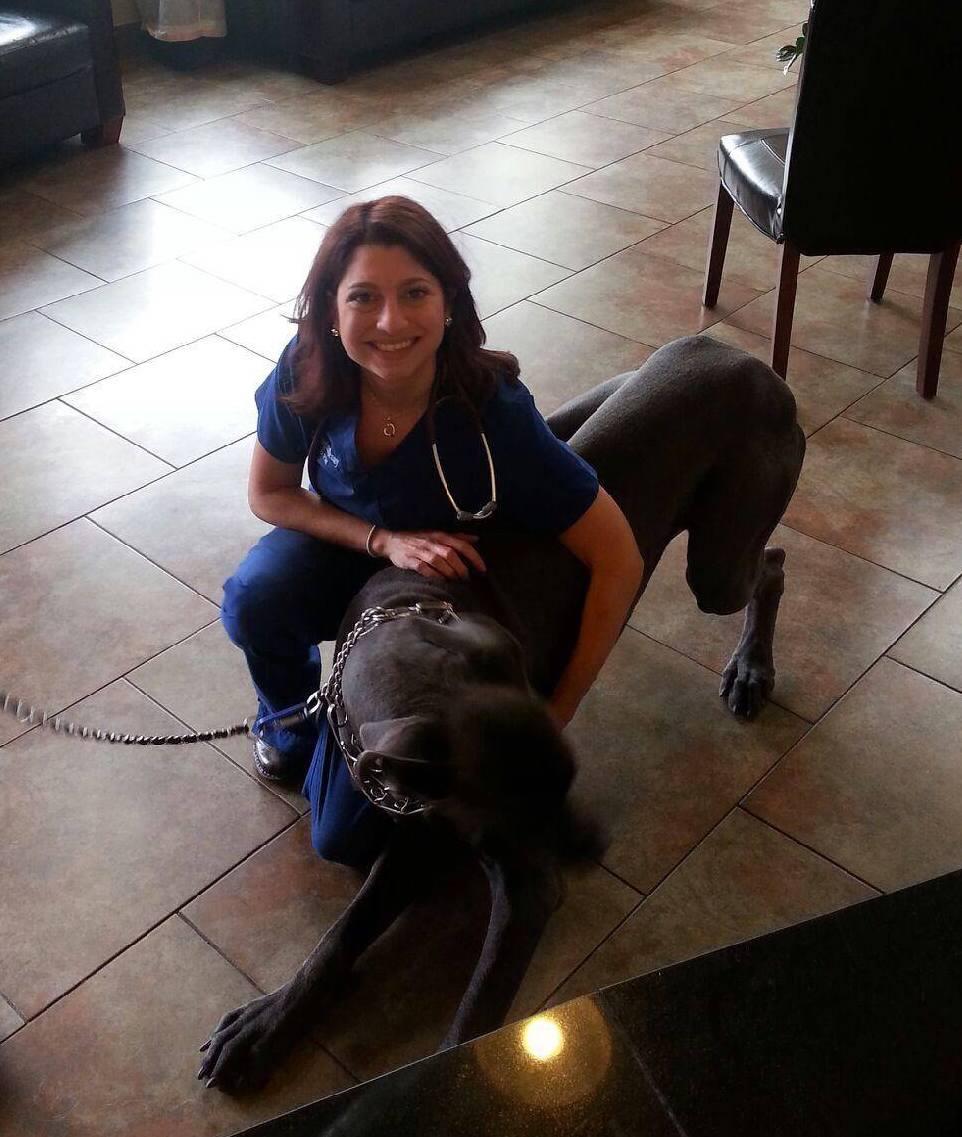Diagnosing and Treating Cat Allergies
We often hear about people being allergic to cats, but what many pet owners never realized is that cats, themselves, can experience allergies. If you suspect your cat may be suffering from allergies, you likely turned to the internet for answers. We’re glad you found us! Here at GeniusVets, we firmly believe that petcare information should come directly from veterinarians, who are far too often sidelined in online conversations these days. That’s why we decided to send some of the most FAQs about cat allergies to veterinarians and compiled their responses to provide you with helpful information you can trust.
Though we sourced the cat allergies information below from leading veterinarians, we encourage you to speak with your veterinarian. If you don’t currently have a veterinarian, use the GeniusVets Directory to find a trusted vet near you.
What are some common cat allergies?
The most common cat allergy is a flea allergy. Even though your cat may be indoor-only, they can still have contact with fleas on clothes that you’ve worn outside, especially if you have a dog that goes outside. There are also food allergies, and then there are environmental allergies from exposure to dust mites, pollens, and other things like that.
How do allergies impact the health and wellbeing of my cat?
Allergies play a large part in the overall well-being of your cat. Your cat may have asthma, so they may not even be able to breathe well if they come into contact with these allergies. They can have some skin issues, so they'll be uncomfortable. They'll be scratching and irritated, which affects their quality of life. They may even have some GI issues, including diarrhea or vomiting. Allergies play a significant role in the problems we see in our cats.
What are some signs and symptoms that my cat may have allergies?
Cat allergy symptoms can vary from pet to pet, but there are some general signs that your cat may be suffering.
Some symptoms of cat allergies are:
- Scratching
- Diarrhea
- Hair loss
- Ear infections
Why is it important to avoid self-diagnosing allergies in my cat?
It's imperative not to self-diagnose allergies in your cat because many other issues can mimic the signs of allergies. So your cat could even have an underlying endocrine disorder or even something else. We want to make sure it is, indeed, allergies first before treating and going that route.
How will a veterinarian diagnose my cat's allergies?
We'll do some skin tests, possibly a skin cytology, and we may get a skin scraping to get an idea of what's going on with your cat’s skin. We may also take a look in the cat’s ears to figure out what allergies your cat is experiencing.
What types of treatments can be used to relieve the symptoms of a cat that is suffering from allergies?
There are many different treatments, including injectable antibiotics, steroids, and oral medications. It all depends on what type of allergies your veterinarian identifies as to what the treatment will be. That’s why it's important to avoid self-diagnosing and bring your cat in so we can figure exactly which treatment route we should take.
How effective are treatments for cats suffering from allergies?
Cat allergy treatments are thankfully very effective. Once we identify the allergy, the treatment path that we choose will be effective towards that allergy. It’s essential to bring your cat to the vet to figure out which type of allergy it is and do that treatment according to whatever it is.
Cat OTC Allergy Relief Products
Cats can experience skin allergies due to environmental triggers, food sensitivities, or flea bites. Common signs include itching, redness, excessive grooming, hair loss, or skin infections. These veterinarian-recommended products can help reduce discomfort, soothe irritated skin, and remove allergens. Always talk to your veterinarian before starting any new treatment.
Product Overviews
- Allerpet Dander Removing Spray – Reduces allergens on your cat’s coat to help with household allergy management. Non-toxic and safe for frequent use.
- Skin and Itch Supplement – Supports healthy skin and coat from the inside out with ingredients that help combat itching and inflammation.
- Cat Dander Wipes – Convenient wipes for removing dander and saliva allergens between baths.
- Veterinary Formula Hypoallergenic Shampoo – Fragrance-free and gentle, this shampoo is ideal for sensitive skin.
- Douxo S3 Calm Shampoo – Contains Ophytrium, a soothing ingredient clinically shown to improve itchy and allergic skin.
- Douxo S3 Seb Mousse – Great for oily or flaky skin. Helps control sebum production and manage seborrhea.
- Virbac Allergroom Shampoo – Soap-free shampoo rich in protein to hydrate and clean delicate skin.
- CeraSoothe Pramoxine Mousse – Provides soothing, non-stinging itch relief with pramoxine.
- CeraSoothe Pramoxine HC Spray – Anti-itch spray with hydrocortisone for fast localized treatment.
- Dechra TrizULTRA+Keto Flush – Antibacterial and antifungal ear/skin flush for deeper cleaning and infection control.
- Dechra MiconaHex + Triz Shampoo – Designed for fungal or bacterial infections with medicated cleansing power.
Comparison Chart
| Product | Form | Highlights |
|---|---|---|
| Allerpet Dander Removing Spray | Spray | Reduces allergens on cat fur and dander; non-toxic and safe for regular use |
| Skin and Itch Supplement | Supplement (Chews/Tablets) | Supports skin health and immune response to allergens |
| Cat Dander Wipes | Wipes | Quickly removes allergens from your cat’s coat; ideal for sensitive cats or allergy-prone households |
| Veterinary Formula Hypoallergenic Shampoo | Shampoo | Gentle, fragrance-free cleanser for sensitive or allergic skin |
| Douxo S3 Calm Shampoo | Shampoo | Contains Ophytrium to soothe irritated or allergic skin |
| Douxo S3 Seb Mousse | Mousse | Controls oily, flaky skin and helps manage seborrhea |
| Virbac Allergroom Shampoo | Shampoo | Soap-free, protein-rich shampoo for allergy-prone cats |
| CeraSoothe Pramoxine Mousse | Mousse | Soothes itchy skin with pramoxine for non-stinging relief |
| CeraSoothe Pramoxine HC Spray | Spray | Anti-itch spray with hydrocortisone for fast localized relief |
| Dechra TrizULTRA+Keto Flush | Flush/Liquid Cleanser | Antiseptic flush for ears or skin; antifungal and antibacterial |
| Dechra MiconaHex + Triz Shampoo | Shampoo | Antifungal and antibacterial formula for severe skin irritation |
Top Picks for Cat Allergy Relief
- Douxo S3 Calm Shampoo – Excellent choice for cats with irritated or allergic skin.
- Allerpet Dander Removing Spray – Helpful for both cat and human allergy relief in multi-pet homes.
The Pet Health Network also offers a comprehensive guide on the symptoms of and treatments for cat allergies. If you have further questions about cat allergies or would like to set an appointment to ease your faithful feline’s suffering, please reach out to your vet. If you don’t already have one, we can help you find a trusted local veterinarian.
The Following Veterinarians
Contributed To The Cat Allergies Information On This Page


The Ultimate Guide
to Cat Care
This free guide is an indispensable manual for cat ownership. Filled with veterinary advice and recommendations on every important topic at each stage of your cat's life, this is all the stuff that responsible cat owners need to know. That is why we are making it free!


